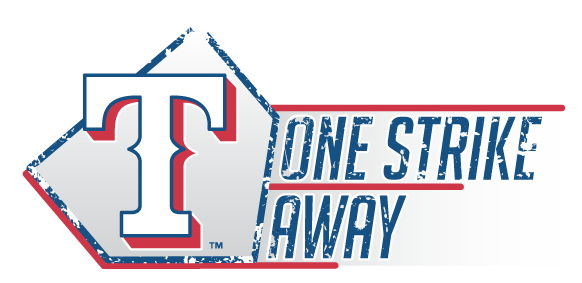Addressing Manager Scenarios
/In case you've been sleeping under a rock and haven't seen the news, the Texas Rangers are currently without a manager. After Ron Washington's resignation last Friday, bench coach Tim Bogar was given the interim manager tag for the time being.
Heading into the offseason coming off of quite possibly the worst season in franchise history -- let's be honest, for a team that started with so much promise to be this terrible nearly entirely due to injuries, it's been brutal -- among questions about the starting pitching, DH, and the outfield, the Rangers will be able to add a manager search to their laundry list of things to do. So where do they go.
Tim Bogar will get a chance over the coming weeks to put his stamp on the team and show that he's a coach that the team can grow under and grind with. Given his varied experience throughout baseball, he brings a unique approach to the organization.
As a player, he was a "student" under Clint Hurdle. At various levels of coaching, he's worked for Terry Francona, Joe Maddon, John Farrell, Bobby Valentine, and Ron Washington. To say he's experienced and incorporated parts of each coaching style would be an understatement, and at the very least, the only one on that list that never had anything nice to say about Bogar was Bobby Valentine. On second thought, no one gets along with Bobby Valentine, so it all works out in the end. Promoting Bogar to manager by removing the interim tag would leave the Rangers needing to fill the role of bench coach instead of manager.
Another internal option would obviously be Mike Maddux. In a sense, Maddux would make the most sense to me from an organizational standpoint. That's not a slight on Bogar, either. As Evan Grant pointed out recently when the Houston managerial job came open, both Bogar and Maddux figured to be potential candidates for the position.
Now that the Rangers have a managerial opening of their own, promoting Maddux would allow the organization to promote other coaches within the organization. Bullpen coach Andy Hawkins, minor league pitching coordinator Danny Clark, and Triple-A pitching coach Brad Holman are all coaches that have spent time grooming many of the pitchers that have come through the Texas system, and are likely all deserving of promotions. Moving Maddux up would allow for each of them to potentially be promoted, and hopefully keep some organizational consistency during a time that the Rangers just might need it the most.
That, of course, says nothing about what would happen with Bogar if indeed Maddux were moved up to the manager role. It's unclear if Bogar would simply return to his role as the bench coach. My gut says yes, but then again, another organization very well could hire him away this winter instead.
Moving along, we can step out and look at external candidates. Names like Manny Acta, Jason Giambi, and Gabe Kapler have been thrown around a bit out in the wild, and each name would seem to be a guy that, if I were a GM, I might be interested in talking to. In case you're thinking it, no, Michael Young is not going to be managing the Rangers, at least not at the present time. With that said, hiring externally, at this point, doesn't seem to make a whole lot of sense.
Don't get me wrong, it very well could happen. I'd put a lower than 25 percent chance on it, however, simply because hiring externally would seem to run the risk of much higher organizational turnover in the short term.
While it's a good "problem" to have, building a respected organization with the kind of overall continuity that Texas has had in recent years tends to end up with pieces of that organization getting consideration for higher roles in other organizations. At the end of the day, you like to see that, and it's something we've already begun seeing with San Diego hiring A.J. Preller and Arizona reportedly looking to interview Thad Levine for their own GM opening.
For now, the most important non-player decision the Rangers will have to make in the coming months will have to do with hiring a new manager. Whether it be internally or externally, it needs to be someone that the organization feels is ready to come right in and compete in 2015, when (hopefully) the roster is back to full strength.

